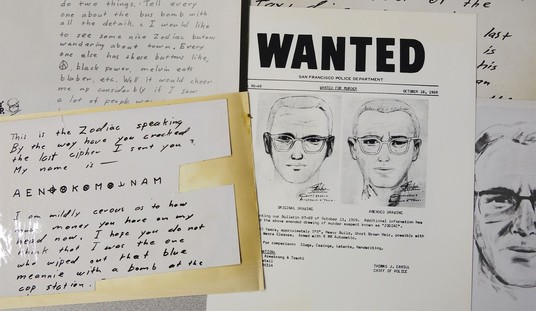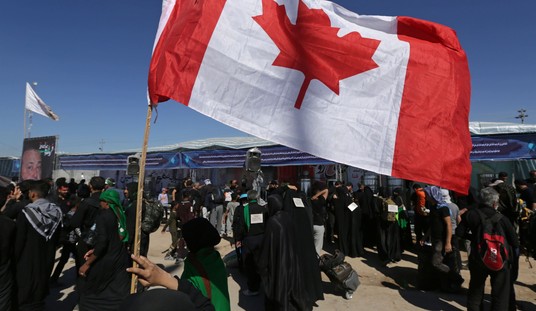Still plenty of people in Tahrir Square, but the crowds have thinned and stalwarts have taken to poetry readings and even the occasional wedding celebration to keep themselves busy. One reason is simply economic: Banks have been closed and food staples were already running out a week ago, so life in Cairo has necessarily had to move on. But another reason is crafty negotiating tactics from Mubarak and company. Time explains the wedge strategy:
The regime appears to have adjusted itself to a daily outpouring of civil disobedience and dissent that would not have been tolerated three weeks ago; it now seems intent on playing for time and testing the endurance of this inchoate movement.
One of the great strengths of the protest movement has been the diversity of its ranks, but the regime is clearly trying to exploit the absence of a united organizational leadership by engaging in talks with various opposition elements, offering only minor concessions, but hoping to find enough takers to eventually isolate those in Tahrir Square who reject negotiations as long as Mubarak remains in power. The core element in the protest camp opposed the talks conducted on Sunday between Vice President Omar Suleiman and opposition elements over the terms of a transition. And divisions are becoming more apparent as it becomes clear that the regime is unlikely to collapse in the way that Tunisia’s did last month.
The tactic’s working: Late news is that the Muslim Brotherhood’s now threatening to quit talks because their core demand, i.e. no more Mubarak, hasn’t been met. (They had dropped that demand earlier, but I guess the rank-and-file insisted that they pick it back up.) According to the Independent, though, the rift inside the opposition isn’t so much ideological as it is generational and cultural:
But there were also signs of splits within the negotiating committee that represents [the protesters]. Some within the 25-strong “wise men” group of prominent Egyptians argued that the protesters should take the regime’s promises of reform at face value and that Mr Mubarak should stay for the six-month departure period he outlined last week.
Naguib Sawiris, a prominent business tycoon and one of the 25 negotiators, yesterday used a BBC interview to call on protesters to allow Mr Mubarak to stay until a clear mechanism for transition was in place. Mr Sawiris said Mr Mubarak had lost his legitimacy but that a big segment of the country did not want to see the President – a war hero – humiliated. He also warned protesters that chaos could ensue along with increasing exploitation by religious movements, and possible moves by the army.
Mr Sawiris’ comments followed similar remarks by other senior negotiators. On Sunday the popular Nobel Prize-winning Egyptian-American scientist Ahmed Zweil said that while there were some who wanted Mr Mubarak to go immediately and there was a problem of “trust” in the talks, others felt that Egypt respected “the elderly” and that Mr Mubarak should be allowed to stay for the “relatively short time” before the planned presidential election.
Whether these are sincere concessions or fig leafs being used by negotiators as a pretext to back down, I leave for you to judge — but do read the Time piece in full, as the author reports an ominous conversation with an army officer who insists that they will clear the streets if given the order to do so in the name of stability. Meanwhile, as I write this, the Jerusalem Post is out with a new story noticing that it’s not just in Egypt where the spirit of Tunisia is suddenly sputtering out. In Jordan, Yemen, and Iran, things are now quiet too. Which makes me wonder: Outside Tahrir Square, is the biggest hotbed of democracy fever now located in … the White House? We’ve gone all-in on the “orderly transition” talking points, so even if the protests dissolve, we’re obliged to keep pushing Mubarak. Backing off would prove that our democracy rhetoric was hollow and it’d send a signal to regional leaders that Obama will tilt whichever way the wind blows at any given moment. So we’re stuck, at least for the time being, which explains Gibbsy’s tough “words are not enough” shpiel below. The good news for O, though? A new poll from Gallup shows 66 percent of Americans think political change for Egypt will be good for Egypt — and 60 percent think it’ll be good for America too.








Join the conversation as a VIP Member